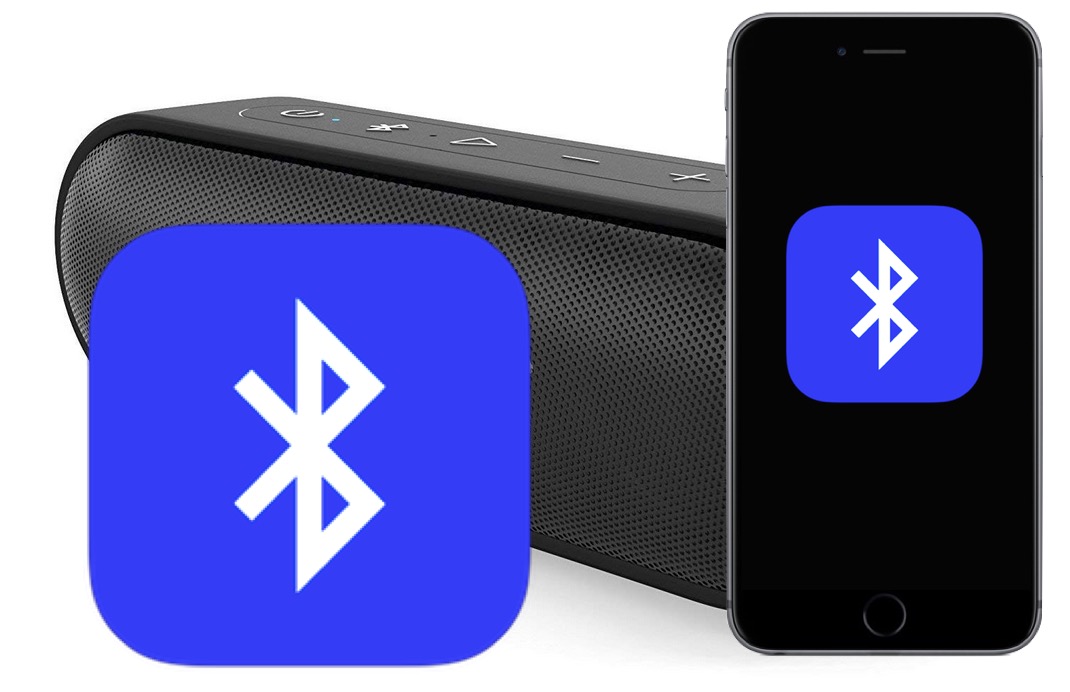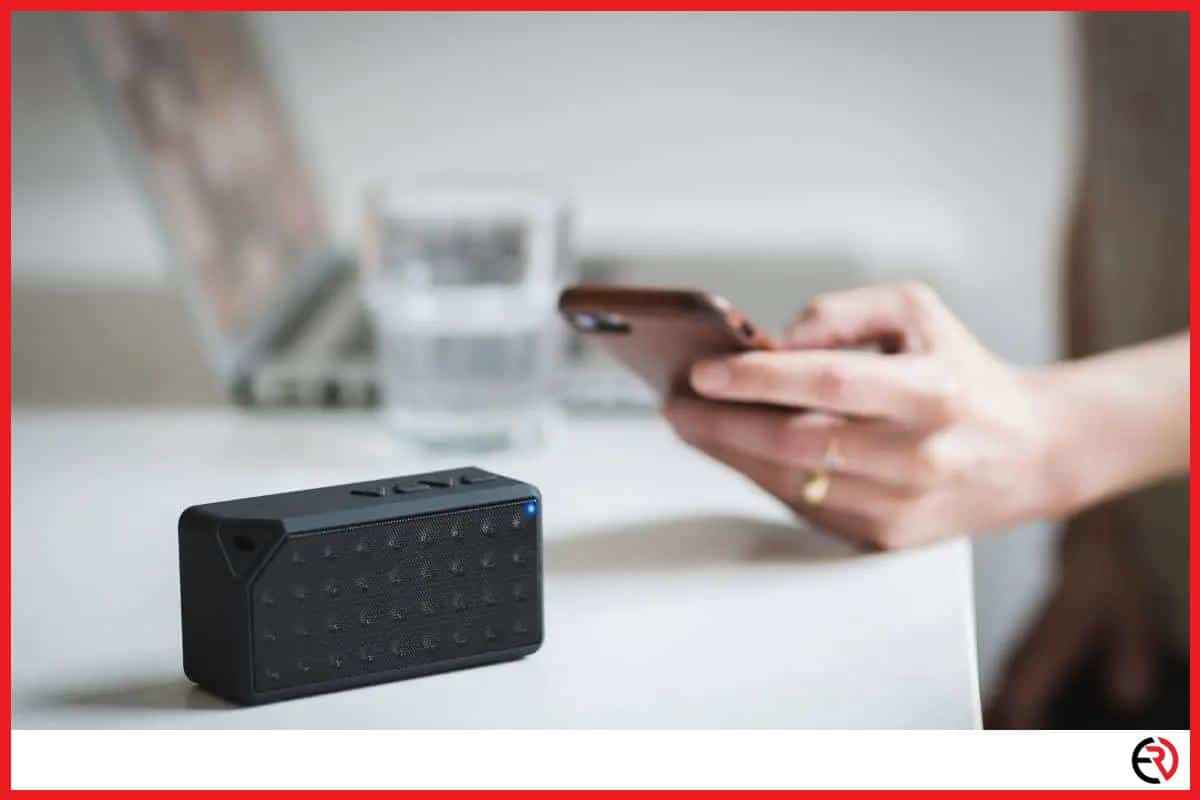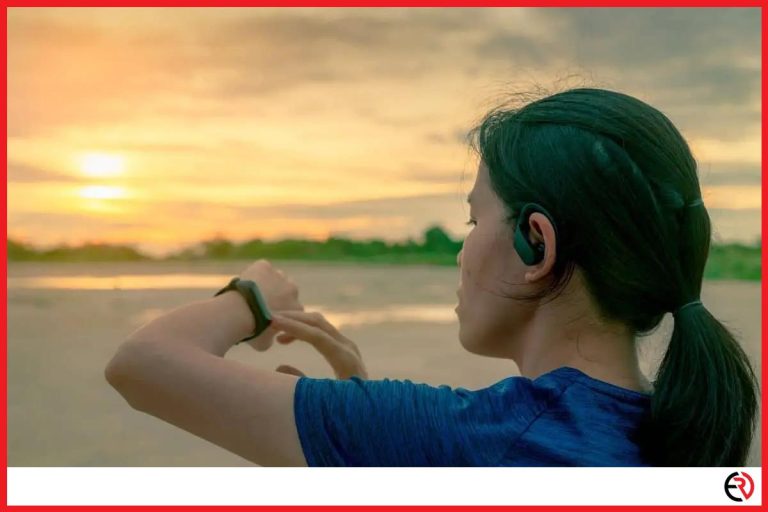Ideal Tips About Can Someone Connect To My Bluetooth Speaker Without Me Knowing

Can Someone Connect to My Bluetooth Speaker Without Me Knowing? The Great Uninvited Guest Debate
1. Understanding Bluetooth Security
Ever wondered if your Bluetooth speaker is broadcasting an open invitation to anyone within range? It's a valid question! We all love belting out our favorite tunes, but the thought of a stranger hijacking our speaker mid-song is less than appealing. The truth is, while Bluetooth is incredibly convenient, it's not always Fort Knox-level secure. It's more like a friendly, slightly clumsy bouncer at a club.
Bluetooth devices communicate using radio waves, and these waves can be intercepted if the necessary precautions aren't in place. Think of it like this: your speaker is shouting out, "Hey, I'm here, ready to play music!" and anyone nearby with a compatible device can potentially hear that call. Now, most modern Bluetooth devices require pairing, a handshake of sorts, before they can actually connect and start streaming. But that initial vulnerability is what concerns us.
The level of security depends heavily on the Bluetooth version your speaker uses and the security settings you have enabled. Older Bluetooth versions had known vulnerabilities that could be exploited, allowing unauthorized access. Newer versions are much more secure, employing encryption and other measures to prevent eavesdropping and unauthorized connections. So, digging into your speaker's manual (or a quick online search) to find out its Bluetooth version is a solid first step.
Another factor is the "discoverability" setting on your speaker. If your speaker is constantly in discoverable mode, it's essentially waving its arms and shouting, "Connect to me!" Turning off discoverability when you're not actively using Bluetooth makes your speaker less visible to potential interlopers. It's like drawing the curtains in your house — you're not shutting everyone out completely, but you're making it less obvious that you're home.
2. The Likelihood of a Bluetooth Heist
Okay, so, how likely is it that someone actually connects to your Bluetooth speaker without your knowledge? Honestly, probably not very likely. The stars would have to align in a rather specific way. Your speaker would need to be in discoverable mode, the potential intruder would need to be within Bluetooth range (usually around 30 feet, but sometimes more), and they would need to be tech-savvy enough to circumvent any security measures you have in place.
It's far more probable that someone might accidentally connect to your speaker, thinking it's theirs. Imagine this: you're at a party, and everyone has a Bluetooth speaker. Chaos ensues as people inadvertently connect to the wrong device, leading to a bizarre mix of musical genres battling for sonic supremacy. Been there, done that. That's more of an accidental connection than a malicious one, though.
However, in crowded public spaces, like airports or coffee shops, the risk is slightly higher. Someone with malicious intent could potentially use readily available hacking tools to search for vulnerable Bluetooth devices and attempt to connect. While it's not a common occurrence, it's a possibility worth being aware of, especially if you're sharing sensitive information or playing something embarrassing through your speaker (we've all been there, too!).
Think of it like locking your car. Most of the time, you're just preventing accidental entry. But locking your car also deters opportunistic thieves. The same principle applies to Bluetooth security. Taking a few simple precautions can significantly reduce the risk of unwanted connections.

Taking Control
3. Simple Steps to Protect Your Speaker
So, what can you do to keep your Bluetooth speaker safe from unwanted connections? Fortunately, there are several easy steps you can take. First, familiarize yourself with your speaker's settings. Most speakers have an option to require a PIN or password for pairing. Enabling this feature adds an extra layer of security, making it much harder for someone to connect without your permission. It's like putting a lock on your front door — it doesn't guarantee complete security, but it makes it significantly more difficult for intruders.
Second, turn off discoverability when you're not actively using Bluetooth. This prevents your speaker from broadcasting its presence to every device within range. Only enable it when you're ready to pair with a new device. It's like turning off the lights in your house when you leave — you're making it less obvious that you're there and less inviting to potential intruders.
Third, keep your speaker's firmware up to date. Manufacturers often release updates that include security patches to address known vulnerabilities. Installing these updates is crucial for maintaining the security of your device. It's like getting regular check-ups at the doctor — you're ensuring that your speaker is in good health and protected against potential threats.
Fourth, be mindful of where you use your Bluetooth speaker. In crowded public spaces, consider disabling Bluetooth altogether if you're not actively using it. The fewer devices broadcasting Bluetooth signals, the lower the risk of someone attempting to connect to yours. Think of it like choosing a safe route home at night — you're being aware of your surroundings and taking precautions to avoid potential dangers.
4. Advanced Security Measures (For the Truly Paranoid)
If you're feeling particularly security-conscious, there are some more advanced measures you can take. Some Bluetooth speakers offer the option to create a "whitelist" of trusted devices. This means that only devices on the list can connect to your speaker, effectively blocking all other connections. It's like having a guest list for a party — only those who are invited can come in.
You can also explore Bluetooth sniffing tools, which allow you to monitor Bluetooth traffic and detect any suspicious activity. These tools are more advanced and require some technical expertise, but they can provide valuable insights into the security of your Bluetooth environment. It's like having a security camera system for your Bluetooth network — you can monitor activity and identify potential threats.
Finally, consider using a VPN (Virtual Private Network) when connecting to Bluetooth devices in public Wi-Fi networks. A VPN encrypts your internet traffic, making it more difficult for hackers to intercept your data. It's like having a private tunnel for your internet connection — it protects your data from prying eyes.
Remember, the level of security you need depends on your individual circumstances and concerns. For most people, the simple steps outlined above are more than sufficient. But if you're handling sensitive information or using your Bluetooth speaker in a high-risk environment, it's worth considering these more advanced measures.

Can Someone Connect To Your Bluetooth Device Without You Knowing? Ear
Bluetooth Version Matters
5. Newer Bluetooth, Newer Security
Bluetooth technology has evolved significantly over the years, and with each new version comes improved security features. Older Bluetooth versions, such as Bluetooth 2.0 and 3.0, had known vulnerabilities that could be exploited by hackers. Newer versions, such as Bluetooth 4.0 and 5.0, incorporate more robust encryption and authentication mechanisms, making them much more secure. It's like comparing an old rotary phone to a modern smartphone — the smartphone has far more security features and is less susceptible to hacking.
If your Bluetooth speaker is several years old, it might be running an outdated version of Bluetooth. Upgrading to a newer speaker with Bluetooth 5.0 or later can significantly improve its security. This is especially important if you frequently use your speaker in public spaces or if you're concerned about the security of your personal information. Think of it as investing in a better lock for your front door — you're upgrading your security to protect your valuables.
Checking your speaker's Bluetooth version is usually as simple as looking at the device's specifications. This information can often be found in the speaker's manual or on the manufacturer's website. If you're unsure, you can also try contacting the manufacturer directly for assistance. It's like reading the fine print on a contract — you're making sure you understand the terms and conditions.
Keep in mind that upgrading your Bluetooth speaker isn't just about security — it can also improve audio quality, range, and battery life. Newer Bluetooth versions often offer better sound fidelity, longer transmission distances, and lower power consumption. It's like upgrading your car — you're not just getting a safer vehicle, but also a more comfortable and efficient one.
6. When It's Time to Say Goodbye to the Old Gadget
Consider replacing your speaker if it's several years old, even if it's still working perfectly fine. Technology advances quickly, and older devices often become vulnerable to security threats over time. Upgrading to a newer model can provide peace of mind and ensure that your personal information is protected. It's like replacing an old computer that's running an outdated operating system — you're upgrading to a more secure and efficient platform.
Research different Bluetooth speaker models and compare their security features before making a purchase. Look for speakers that support Bluetooth 5.0 or later, offer strong encryption, and allow you to set a PIN or password for pairing. Reading reviews and comparing specifications can help you make an informed decision. It's like doing your homework before investing in a new product — you're ensuring that you're getting the best value for your money.
Don't forget to properly dispose of your old Bluetooth speaker. Simply throwing it in the trash can be a security risk, as it may contain personal information. Consider donating it to a local charity or recycling it at an electronics recycling center. It's like shredding confidential documents before throwing them away — you're protecting your privacy and preventing your information from falling into the wrong hands.
Ultimately, the decision of when to upgrade your Bluetooth speaker is a personal one. However, if you're concerned about security, it's worth considering upgrading to a newer model with improved security features. The peace of mind that comes with knowing your personal information is protected is well worth the investment.

FAQ
7. Your Burning Questions Answered
Still scratching your head about Bluetooth security? Let's tackle some frequently asked questions:
Q: Can someone hack my Bluetooth speaker and listen to my conversations?A: While theoretically possible, it's highly unlikely. It would require someone with significant technical skills, physical proximity, and a vulnerability in your specific speaker model. The risk is much lower than, say, someone hacking your email account.
Q: My neighbor keeps connecting to my speaker! How do I stop them?A: The easiest solution is to enable pairing mode with a PIN or password. This prevents unauthorized devices from connecting. Also, make sure your speaker isn't constantly in discoverable mode. Turning it off when not in use can prevent unwanted connections.
Q: I have an older Bluetooth speaker. Is it really that vulnerable?A: Older Bluetooth versions do have known vulnerabilities. While it doesn't guarantee you'll be hacked, the risk is higher compared to newer devices. Upgrading to a speaker with Bluetooth 5.0 or later is a good idea if you're concerned about security.
Q: What does 'discoverable mode' actually do?A: Think of it as your speaker shouting, "Hey, I'm here and ready to connect!" Anyone nearby with a Bluetooth device can see it and potentially try to connect. Turning it off is like going incognito — your speaker becomes invisible to other devices unless you specifically tell it to be seen.

The Bottom Line
8. Taking Reasonable Precautions is Key
So, "can someone connect to my Bluetooth speaker without me knowing?" Yes, it's possible, but highly improbable under normal circumstances. The keyword, in this context, is "connect," and its part of speech is a verb. The verb implies action, specifically the action of establishing a link or connection. The chance is small, but being proactive with your security measures is the best approach.
Bluetooth is a remarkably useful and prevalent technology. If you take a few sensible precautions, there is no need to abandon it due to security issues. Keep your firmware up to date, only activate discoverability when necessary, and choose strong passwords. With these easy procedures, you can keep listening to music worry-free!
Ultimately, the level of security you need depends on your individual risk tolerance. But by taking these simple steps, you can significantly reduce the risk of unwanted connections and enjoy your music without worrying about unwanted guests hijacking your speaker.
